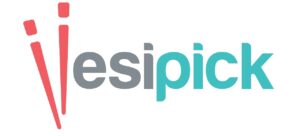Here are 5 types of personalities you might encounter in a software house, keeping in mind that these are generalizations and individuals can exhibit traits from multiple categories:
The Rock: The Reliable Developer
Traits:
These developers are dependable, meticulous, and possess strong problem-solving skills. They excel at taking on complex tasks, troubleshooting issues, and ensuring code quality.
Strengths:
They are the go-to people for resolving bugs and technical challenges. Their focus and attention to detail ensure stability and reliability in software projects.
Weaknesses:
They might be less enthusiastic about creative brainstorming or rapid prototyping. Their focus on detail could potentially slow down development in fast-paced environments.
The Architect: The Visionary Designer
Traits:
These individuals are highly creative and possess a strong understanding of user experience (UX) principles. They excel at designing software with intuitive interfaces, considering user needs and workflows.
Strengths:
They bring fresh perspectives and innovative ideas to the table. Their ability to translate complex functionalities into user-friendly interfaces is crucial for successful software development.
Weaknesses:
They might struggle with the technical limitations of development or lose sight of practical constraints in their pursuit of the ideal user experience.
The Maverick: The Independent Thinker
Traits:
Maverick developers are highly skilled, self-motivated, and often possess a unique problem-solving approach. They thrive on challenging tasks and can be incredibly productive when working independently.
Strengths:
They can bring a wealth of knowledge and experience to the table, tackling difficult problems with innovative solutions. Their independent nature allows them to focus deeply and produce exceptional results.
Weaknesses:
They might struggle with collaboration or communication, preferring to work on their own. Their independent nature could sometimes lead to challenges in integrating their work seamlessly with the larger project.
The Collaborator: The Team Player
Traits:
These developers are excellent communicators, and team players, and possess strong interpersonal skills. They excel at working collaboratively, building consensus, and ensuring everyone is on the same page.
Strengths:
They foster a positive and productive team environment. Their communication skills are crucial for bridging the gap between technical and non-technical stakeholders.
Weaknesses:
They might struggle with making independent decisions or taking ownership of complex tasks. Their focus on collaboration could potentially slow down decision-making processes.
The Learner: The Eager Newcomer
Traits:
These individuals are enthusiastic, quick learners, and possess a strong desire to learn and grow their skills. They bring fresh perspectives and are eager to contribute to projects.
Strengths:
They bring new energy and a willingness to learn to the team. Their eagerness can spark innovation and challenge existing assumptions.
Weaknesses:
They might require more guidance and support from experienced developers initially. Their lack of experience could potentially lead to knowledge gaps that need to be addressed through training or mentorship.
Remember, these are just a few examples, and personalities can be complex. Effective software houses value a diversity of personalities and perspectives. A well-rounded team with a mix of these different strengths can create a more successful and dynamic work environment.



